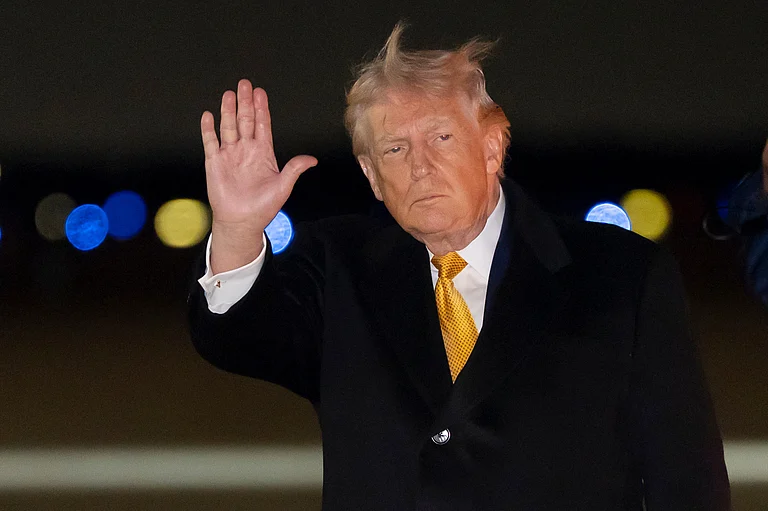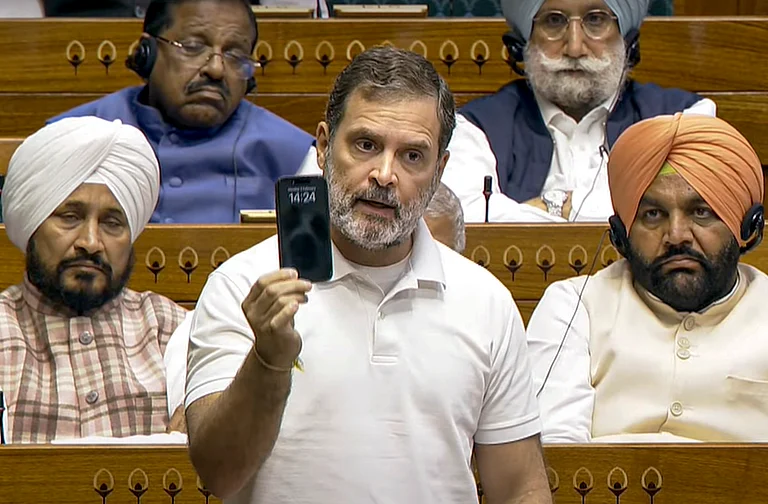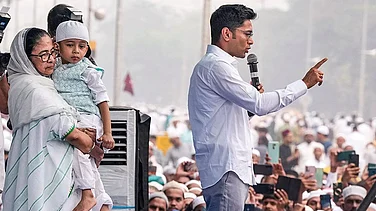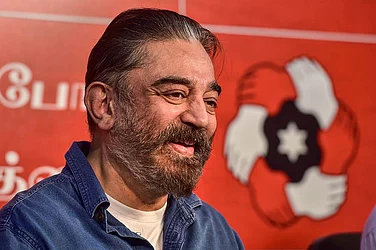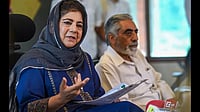
Summary of this article
Mishra’s remarks follow Trump’s move to raise H-1B visa fees to USD 100,000 annually, impacting Indian tech workers.
He stressed attitude, teamwork, and capability-building as key to India’s goal of becoming a developed nation by 2047.
Highlighted India’s innovation gap despite its thriving startup ecosystem, urging greater focus on human resources.
Dr P K Mishra, the Prime Minister's principal secretary, stated on Saturday through the Capacity Building Commission, that the Centre has been urging Indians employed overseas to come back to the country.
According to PTI, Mishra was present at the Indian Institute of Management Mumbai's (IIM Mumbai, formerly NITIE) convocation event.
When asked by reporters on the sidelines of the event if the government was urging Indians employed abroad to come back to the nation, he responded, "We have been encouraging them, and also it is part of our Capacity Building Commission." His remarks follow a significant increase in H-1B visa fees by the US government.
The 'Restriction on entry of certain non-immigrant workers' proclamation, which US President Donald Trump signed on Friday, would increase the cost of an H-1B visa to an astounding USD 100,000 per year. This will have a negative impact on Indian professionals in the US.
PTI reported that popular among Indian computer workers, H-1B visas are good for three years and can be extended for a further three. Indian tech workers on H-1B visas and those employed by tech businesses will be greatly impacted by Trump's decision.
In his speech to the students, Mishra asserted that future achievements are shaped by an individual's approach, attitude, people resources, and capabilities.
"I would like to focus on two important aspects which will shape your future accomplishments. Your future, all your knowledge, and all that you have learned will certainly help, but more importantly, they will shape your achievements. Number one, an individual's approach and attitude and the other is human resource and capability," he said.
He stated that a greater emphasis on human resources and capabilities is the main reason for the majority of the research advancements seen in industrialised nations.
According to Mishra, students would be crucial to this effort to guarantee that India develops into a developed nation by 2047.
India still has an invention gap, despite becoming a global innovation powerhouse, and the government has set aside money to close it, he said.
"India has become a global innovation powerhouse with over 100 unicorns and 1.9 lakh startups...Today, we have a thriving startup ecosystem; however, there are still innovation gaps. The government has recognised the gap and rolled out various initiatives to overcome these hurdles," he added.
PTI reported that he stressed that technological proficiency is insufficient on its own and focused on human resource development. He emphasised the importance of attitude, teamwork, openness, respect for one another, humility, ethics, transparency, and objectivity.
"Teamwork is probably much more important than individual brilliance," he said.
IIM Mumbai's Chairman of the Board of Governors, Shashi Kiran Shetty, who is also the Chairman of Allcargo Group, stressed the need for a "very strong policy" on special economic zones for India to leapfrog into manufacturing.
"With a strong policy, you will have so many companies that will come and set up manufacturing in the country, which will create employment and improve technology," he added.
Ship owning and ship building are also very critical for national security and national growth, said Shetty.
"Today, over 90 per cent of our foreign trade is done by foreign carriers. Whether it is containers, whether it is bulk cargo. We have 10 or 15 Navratnas who can buy ships. So Indian companies, whichever sector they are in, don't have to run the ship; they can give a global tender for the best ship managers, who can come and open their office in India, and they can employ Indian people," he added.



